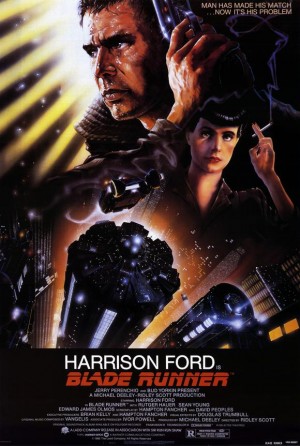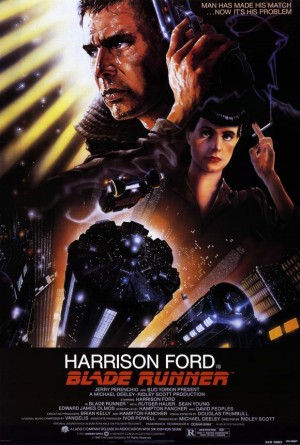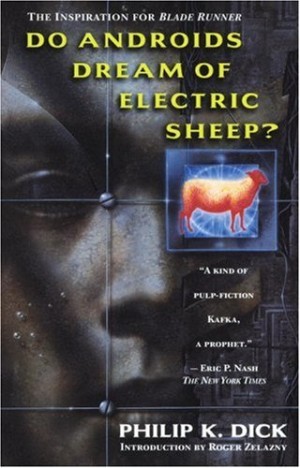
There are many elements of science fiction that find their way into stories that are not science fiction. Many times, enthusiasts of the genre will try to claim these works as part of the family. Atlas Shrugged and 1984 are examples. The same thing happens, only more frequently, with noir. Sometimes, the mere presence of a morally ambiguous protagonist is enough for a piece to be so labeled.
Ridley Scott’s Blade Runner, however, is a rare work — quite possibly unique — that may fit both bills. While perhaps not classically noir, there is no denying a strong noir presence, and its science fiction credentials are beyond question, what with the flying cars and androids, called replicants, and off-world colonies. As a devotee of both genres, I quite naturally am a fan of the director’s third film, but watching it is an experience both frustrating and pleasant. It is a good movie, but not the great one it could have been.
Alien, Scott’s second feature, is a masterpiece whose best form made it to the silver screen. One simply cannot imagine a better version. Blade Runner, however, is a movie whose perfect version was never realized, whose potential was never reached. That mirage of the ideal Blade Runner intrudes on my thoughts every so often, and I find myself reaching for the DVD, thinking that perhaps this will be the viewing where I get it, where I notice that missing part or make that important connection.
It never works out that way. As usually happens in life, experience trumps hope. The movie simply is not as good as it ought to have been, and the reason is the plot. This is all the more tragic given that Philip K. Dick, in the novel Do Androids Dream of Electric Sheep?, had already provided a first-rate plot that was later diluted over multiple drafts of the screeenplay.











